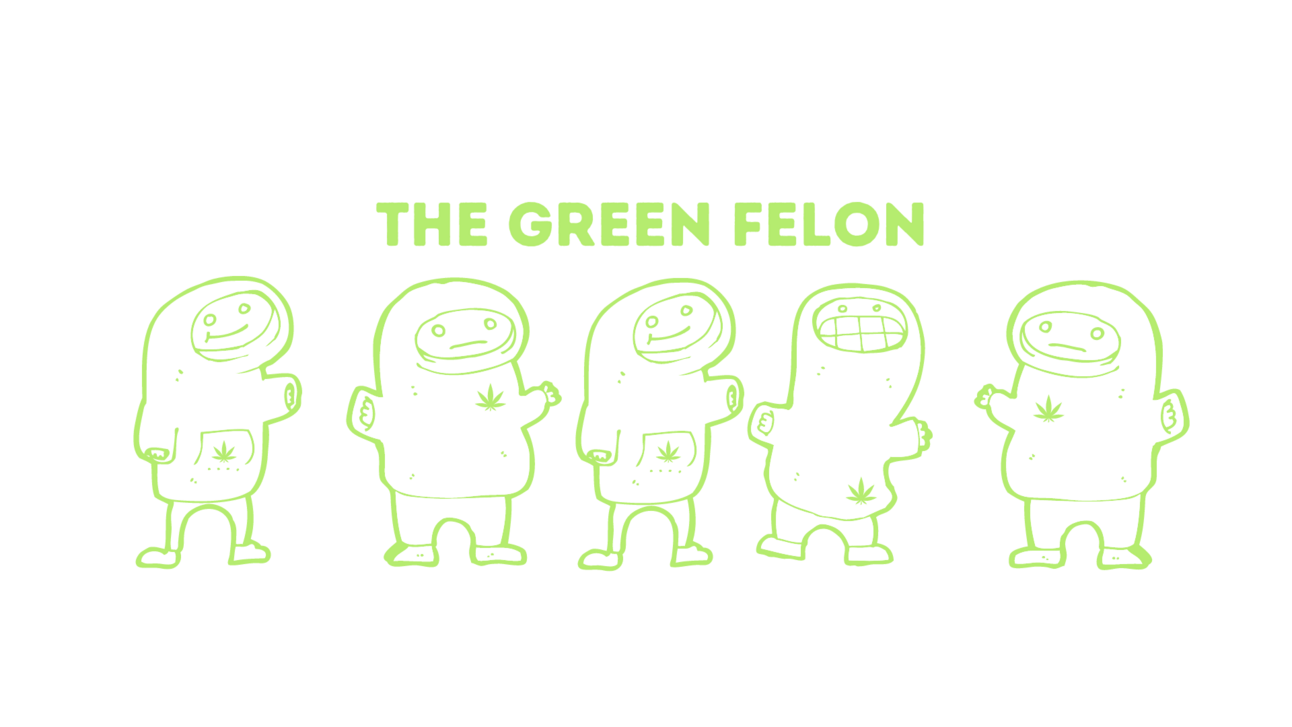
News 📀 Highlights:
CBD 🌴 Inhalation Reduces Lung Inflammation: Research indicates that inhaled CBD may help reduce cytokine storms ☔ and excessive lung inflammation, suggesting potential benefits for conditions like COVID-19 😷. PMC
FDA Approves Epidiolex 🌬: The FDA has approved Epidiolex, a purified CBD 🟢 product for specific seizure disorders, underscoring the need for regulatory oversight in CBD products 💚. U.S. Food and Drug Administration

Quick Read 🙇🏽♂️:
Pharmaceutical Aesthetic, Limited Proof 🧫: CBD inhalers mimic medical-grade devices 🏩, offering sleek design and precise dosing, yet they lack FDA approval and clinical substantiation, casting doubt on their pharmacological legitimacy 📵.
Bioavailability Claims vs. Scientific Gaps 🔭: Touted for their superior CBD bioavailability via pulmonary absorption, these inhalers often operate without empirical support, relying instead on marketing rhetoric over validated data 📊.
Dosing Precision or Vaporized Ambiguity ⚗️: Although CBD inhalers promise exact milligram-per-puff dosage, inconsistencies in formulation 💮 and unverified propellant systems frequently undermine their therapeutic predictability.
Regulatory Gray Zones and Legal Risks 🧮: Positioned ambiguously between supplements and medical devices, CBD inhalers 👄 navigate precarious legal territory, potentially exposing consumers to unregulated ⚠️ ingredients and misbranded health claims.
Technological Wellness Theater 🎠: These devices exemplify a larger trend of aestheticized pseudoscience, where tech-forward branding masks the absence of peer-reviewed evidence or long-term inhalation safety research 📝.

CBD Inhalers: Medical-Grade 🏥 or Market Fluff? ☁️
In an era where cannabidiol (CBD) 🦠 is being infused into everything from hand creams to honey 🍯 sticks, it was only a matter of time before someone jammed it into a pressurized inhalation device. Enter the CBD inhaler—a metallic, mouth-sized innovation that aims to marry wellness with science fiction vibes 🛸. These handheld gadgets boast pharmaceutical precision, rapid relief, and an uncanny resemblance to asthma tools 🔩, begging the question: are we breathing in bona fide medical ingenuity?
Inhaled CBD tends to enter the bloodstream faster than other forms—in as quickly as 30 seconds or less.”
Inhalers 💋, Innovation, and Imitation
CBD inhalers look like they were designed by NASA 🛰️. They’re sleek, compact, and marketed with all the seriousness of life-saving bronchodilators. The intended message? That this isn’t your sketchy cousin’s vape pen—it’s a legitimate medical device, perfectly dosed for optimal pulmonary delivery 🎛️.
The supposed science behind these inhalers is straightforward ➡️: by bypassing the gastrointestinal system, CBD enters the bloodstream faster 🧭, leading to quicker therapeutic effects. This pulmonary absorption method touts bioavailability rates as high as 56%, a sharp contrast to the 6–19% from gummies and tinctures 🧉. But does higher absorption equal better results? Or are we just getting better at inhaling the illusion of precision ⚙️?

Where 😳 Are the Clinical Trials?
Despite its sterile appearance and complex delivery mechanism, the CBD 🥑 inhaler is not an FDA-approved device 🪪. In fact, most currently available models lack the backing of peer-reviewed research, a crucial missing piece for any product claiming medical efficacy 🧾. It’s the cannabis equivalent of wearing a lab coat to a costume party—convincing from a distance, but not up close.
True 👍🏿 medical inhalers must meet stringent criteria involving particle size, delivery consistency, and lung deposition efficiency. Without clinical validation, CBD inhalers 🔋 risk being the snake 🐉 oil atomizers of our time, promising scientific sophistication without offering the necessary receipts.
Dosing
One ☝🏻 of the main selling points of CBD inhalers is meticulous dosing—typically 2️⃣ mg of CBD per puff. In theory, this precision enhances therapeutic predictability. In practice, many devices show wild variability in delivery 📤, often because of inconsistent vapor dispersion, environmental degradation, or flawed propellant systems 🚁.
And let's talk 🗣 about “proprietary blends.” If you’ve ever read an ingredient label on a CBD inhaler and felt like you were deciphering the Dead Sea Scrolls 📜, you’re not alone. Many companies guard their formulations like state secrets, often skimping on third-party testing or batch consistency. Without transparency, dosage promises remain as airy as the mist you’re inhaling 🧃.

Regulatory Limbo: The Wild West in Your Lungs
Here’s where things get even murkier 🧞. CBD inhalers occupy a no-man’s-land between supplement, drug, and delivery device, leaving regulators scratching their heads 🧠. Because these products don’t claim to treat specific diseases (wink wink), they can often slip past FDA oversight like a ninja in a wellness robe 🥷.
Still, in 2️⃣0️⃣2️⃣0️⃣, the FDA warned multiple companies making unsubstantiated claims about CBD’s medical powers 💪🏼. CBD inhalers may be flying under the radar now, but it’s only a matter of time before the law 👮🏼♀️ catches its breath and catches up.
Wellness Theater 🕋: Now Inhalable!
Let’s be honest—CBD 🎍 inhalers aren’t just about bioavailability. They’re about branding. Wrapped in clinical aesthetics and marketed using terms like “pharma-grade,” “molecular encapsulation,” and “nanoparticle delivery,” these devices 🖱️ are often more about performance than precision 🦷.
They fit into a broader trend of technological theater in the wellness space 💟: if it looks like a hospital tool and sounds like a NASA 👩🏫 breakthrough, it must be good for you, right? Maybe. Or maybe we’ve just become so hungry for high-tech healing that we’ll inhale anything that comes in a chrome canister 🧿.
To be fair 🎡, some inhalers do show promise. In Israel, metered-dose cannabis inhalers have been tested in clinical environments for treating pain and anxiety 🧳. But these devices are medically supervised, rigorously tested, and far removed from the over-the-counter, influencer-endorsed gizmos cluttering the market today ☀️.

The Alveolar Elephant 🐘 in the Room
Let’s not forget: your lungs are a sensitive, highly efficient gateway to the bloodstream 🫁. While that makes inhalation an ideal delivery method for certain drugs, it also raises safety concerns—especially when it comes to excipients like ethanol, propylene glycol, or synthetic flavoring chemicals 🛢️.
Without regulation, companies can pack CBD 🥝 inhalers with questionable substances, sometimes under the guise of “natural terpenes” or “botanical enhancers.” But natural doesn’t always mean safe, especially when atomized and inhaled 👃🏼 directly into delicate alveolar tissue 🪶.
So... Medical 💒 Marvel or Boutique Breather?
CBD 🐸 inhalers are a seductive proposition: sleek design, rapid relief, and a promise of pharmaceutical gravitas 🦾. But beneath the surface lies a fog of regulatory ambiguity, questionable efficacy, and unproven health claims 🪤.
That doesn’t mean they’re worthless—it just means the market 🏦 has once again sprinted ahead of the science, leaving consumers to make health decisions based on branding 🔖 rather than biology. Until more rigorous data emerges, these inhalers will continue to hover between ↔️ innovation and illusion.
The next time someone offers you a puff from their peppermint-infused 🍬 CBD inhaler, ask yourself:
Are you inhaling wellness 🧡 , or just very expensive 🤑💨 air with a splash of aspiration?
🔫 Eliminate Distractions 📱

The information provided in this newsletter is for informational purposes only and does not constitute medical, legal, or professional advice. Always consult with a qualified professional before making any decisions based on the content shared here.

